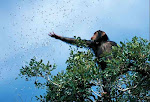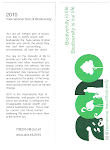RELIGIONS, INTERFAITH, SECURITY, & HUMAN RIGHTS: recommended websites:
(prepared by Ivan D. Pereira).
*
*
Short list for beginners with simple & practical strategies:
- under construction. For now check:
http://www.beliefnet.com/ - good start to varous faiths, religious practices, baby names in different religions, marriage rituals, etc., & interfaith issues. Practical articles. Browse, and check the internal search engine. www-health.concordia.ca - Click on "Health Information & Promotion" on the top bar, then click on "Stress Management". Click the back button, then 'Links', or other topics. Browse. If the website does not open, google 'Concordia University Health Services'. Make sure the website has '.ca' as there are Concordia Universities in other countries. Larger issues of identity formation, world-view, etc., are not included on the Concordia website, as they are more complex, collecticely and individually, and these relate to larger issues of 'health', conflict resolution, common goals, and how does one create feelings of 'community'.
*
REFERENCE:
- list of religious websites, has info and tools for religious ceremonies, religious music, baby names in various faith communities, etc..
- considered definitive, info and data of world religions.
interfaith, has some 43,870 statistics and citations re. 4,200 religions.
www.iep.utm.edu/
university website with comprehensive philosophy and theology texts.
http://www.rna.org/library.php#denoms
- Excellent comprehensive resources of most major religions in the world, bibliographies, organizations, reference materials, go to its ‘religion online library’. (some recommended websites require fees or registration).
www.umn.edu/humanrts/
- U. of Minnesota Human Rights library. Most Comprehensive.
Excellent resources on South America. Good links.
Online South American collection of the University of Texas. Comprehensive.
In 'social science theory', we tend to get overwhelmed with 'abstractions'. This blog of Agustin Palacios is the 'existential' manifestation of real life in progress, about the struggle on the ground for freedom, dignity, and equality, in the life of one person & of a 'world-view'. The title of the blog is: 'I exist. Aqui. Contigo'. Agustin is gifted.
Newly created digital library for the European Union.
Some of the tradtional wisdom and links to the traditional chiefs lecture series (Original peoples of North America) can be found on this website (National Museum of the american Indians).
*
*
INTERFAITH:
www.religioustolerance.org/index.htm#new
- Canadian - Ontario Consultants on Religious Tolerance, formerly of Canadian Catholic Bishops. .
http://www.beliefnet.com/
- American, interfaith, topical, faith experiences of young people, etc..Excellent.
www.uk.initiativesofchange.org/
- bills itself as ‘building trust across the world’s divides’. Has 2005 lectures (text & audio) of Rajmohan Gandhi, grandson of Mahatma Gandhi.
*
*
MENTAL HEALTH WEBSITES:
www.psychcentral.com/resources/Mental_Health
-very good and comprehensive resources on various topics of mental health.
It includes links to other excellent mental health websites.
-U.S. National Library of Medicine. It includes e-learning courses online (free).
-extensive resources on health in general and good links to other websites,
from University of Emory.
-excellent Canadian website for workplace issues.
-the site includes leasson plans on health issues for K to Grade 12.
-check the table of contents related to health issues of teens by this
award-winning public broadcasting service in Vermont, US. Includes videos.
-Columbia University's award-winning "Alice! Health Care Program", in the format of Questions and Answers (Q & A) for students and visitors to the website. Answers given by health educators and health care professionals.
-emotive (emotional) intelligence for business, education, and personal development. It deals with individual & organizational change & includes books and courses (not free). Useful information.
-excellent for health, weight control, nutrition tips, etc..
-website of author, John F. Murray, on 'mental equipment' among tennis professionals. The 'principles' can be extrapolated to (used in) life in general, regarding goal setting, focusing, mental preparation, etc..
http://www.ccamhr.ca/resources/ Toolkit_for_managers_mental_health
in_the_workplace_Booklet.pdf
-booklet of the Conference Board of Canada. Very useful tool for managers.
- tips on meditation, has a meditation room. You can create your own corner in your home. There are known health benefits.
http://www.agingresearch.org/calculator/sign_in.cfm
-based on medical questionnaire online, the website projects your 'life expectancy'. This can be 'reversed', of course, with a more healthy life style, and you can live 'longer' and healthier. Also, check, http://www.deathclock.com/ -Rumour had it that Abraham lived to 800 years, as per 'hyperbole' of the day.
*
*
SCHOOL CURRICULUMS:
o
- website of Government of Canada for teachers, parents, & students. Click on ‘partners’ on top bar, then ‘your Province’. Click ‘Resources’. Possibly because of change in webmaster, this sometimes does not open up. Google 'School Net' and you will find many school curriculums from different parts of the world.
http://www.globalschoolnet.org/index.html Global SchoolNet Foundation
http://www.afriprov.org/ - African proverbs. Excellent.
www.diggity.ca/kidslinks.htm - excellent, games and educational stuff. Gets redirected often.
http://www.pbs.org/wgbh/pages/frontline/torture/ - The Torture Question: in fighting the war on terror, how far should the Unites States be willing to go to protect itself? Video available online, Teacher’s Guide & links.
*
*
YOGA:
http://www.yogajournal.com/
http://www.yogasites.com/ - all definitive with links.
*
*
For JOURNALISTS, RESEARCHERS, & PEACE ACTIVISTS:
RESOURCES FOR CONTEMPORARY TOPICS:
http://www.religionlink.org/
- *** linking journalists to religious sources. (links to rna.org)
http://www.rna.org/
- website of the Religion Newswriters Association.
www.religion-online.org/
- very elaborate. Has links to many topics & current issues, and original complete texts of theologians, documents, etc...Excellent for research.
http://www.religionheadlines.org/
- ‘selection of daily headlines with news about faith, values, and religion’.
http://www.faithandmedia.org//
- Centre for Faith and the Media. E-zine, INFO re. conferences.
http://english.aljazeera.net/Homepage - the Arab version of CNN, based in Qatar. English version for U.S.
*
Religion and 911 in America: American religious website re. various issues about 9/11.
*
Vietnam War and 911:
http://www.newark.rutgers.edu/
- Rutgers University, some restricted access, available to professors & students.
Click on 'Search Rutgers', then type in 'Vietnam'.
Texas Tech's ietnam Center & Archive.
This is the website of Kim Phuc, 'the girl in the picture', from 1972, napalmed along with other children by an air strike, a photo that changed the world-view of the war forever.
If it does not open, google "Kim Foundation" or "Kim Phuc Foundation".
This is the website of the Venerable Buddhist monk from Vietnam war years, Thrich Nhat Hahn, nominated for the Nobel Peace Prize by Martin Luther King. Do click on 'Practices' on the top bar, and read these in the left column, about stress, meditation, etc., with very simple suggestions to improve life's awareness & quality of life. If it does not open, google "Plum Village". He also has useful material at: http://www.beliefnet.com/ where he wrote 'an open letter to Osama Bin Laden', re. the ethical issues of the attack on the 'twin towers' in New York, stating at the outset Bin Laden was 'not guilty' until convicted in a court of law. Bin Laden subsequently claimed, with some bravado, that he ordered the attacks. This fascinating article on the ethics of the choice to use violence to resolve a grievance may still be in the Archives. o
This is a little book by Herman Hesse, the Nobel Prize winning author from Germany.
Written in 1926, he explains in a simple, beautiful language the journey of Siddhartha, as he explores suffering and pain, self-denial, joy, and meaning of life. Obviously, we can learn, too, from our Buddhist brothers and sisters how to endure and live. Great book.
*
Alternate view of 911:
http://www.loosechange911.com/ - compelling video with interviews of inconsistencies in ‘official’ analysis of why the Towers fell, etc.
SECURITY ISSUES:
http://www.gwu.edu/-nsarchiv/index.html The National Security Archive of George Washington University. Excellent. Click on FOIA on top bar for Freedom of Information Act, and how to make requests under FOIA.
http://counterterrorismblog.org/
- counterterrorism & security issues.
www.globalsecurity.org/military/world/war/lebanon.htm
(On Lebanon, civil war, 1975-1991).
http://www.www.xerez.demon.co.uk/
- issues about East Timor, human rights abuses, etc..
www.free-lebanon.com/ - re. modern struggles of Lebanon.
www.phoenicia.org/christiansmea.html
- on ‘Shattered Christian Minorities of the Middle East’.
http://milblogging.com/ - military ‘blogs’ from 28 countries giving bird’s eye view of relevant issues of bloggers.
*
INTERNATIONAL ORGANIZATIONS:
http://www.icc-cpi.int/home.html - the new International Criminal Court. Various states have chosen not to sign it. Others, like UK, have chosen to bring their own laws in accordance so that their soldiers will be tried in domestic courts.
http://www.un.org/docs/sc/ U.N. Security Council
http://www.un.org/english/ United Nations website
http://www.un.org/ga/61/ 61st session of UN General Assembly (2006)
*
CONDOLENCES & GRIEVING:
- light a virtual candle for your loved ones, and lives lost in war or conflict.
Website with resources about grief and loss. Click on 'tools' on top bar, and light a candle for a loved one who has passed away, or suffered 'injuries' in war or in peace time.
*
NETWORKING for PEACE:
www.freewebs.com/abwwrpeace/community.html
- it has many links for ‘activists’.
http://www.send2press.com/articles/index.shtml
- articles on how to write press releases, etc..
*
E-CARDS:
www.thundercloud.net/acpressions.com - beautiful e-cards.
http://www.bluemountain.com/ - faith & interfaith section for e-cards.
http://www.reata.org/interview2.html
‘Interview with God’ & ‘Moments with God’.
In several languages. Reflective, Non-denominational.
*
MULTI-FAITH CALENDAR:
www.pbs.org/wnet/religionandethics/calendar/month
- a companion to the weekly television news program.
- Has beautiful monthly ‘- inter-faith calendar.








